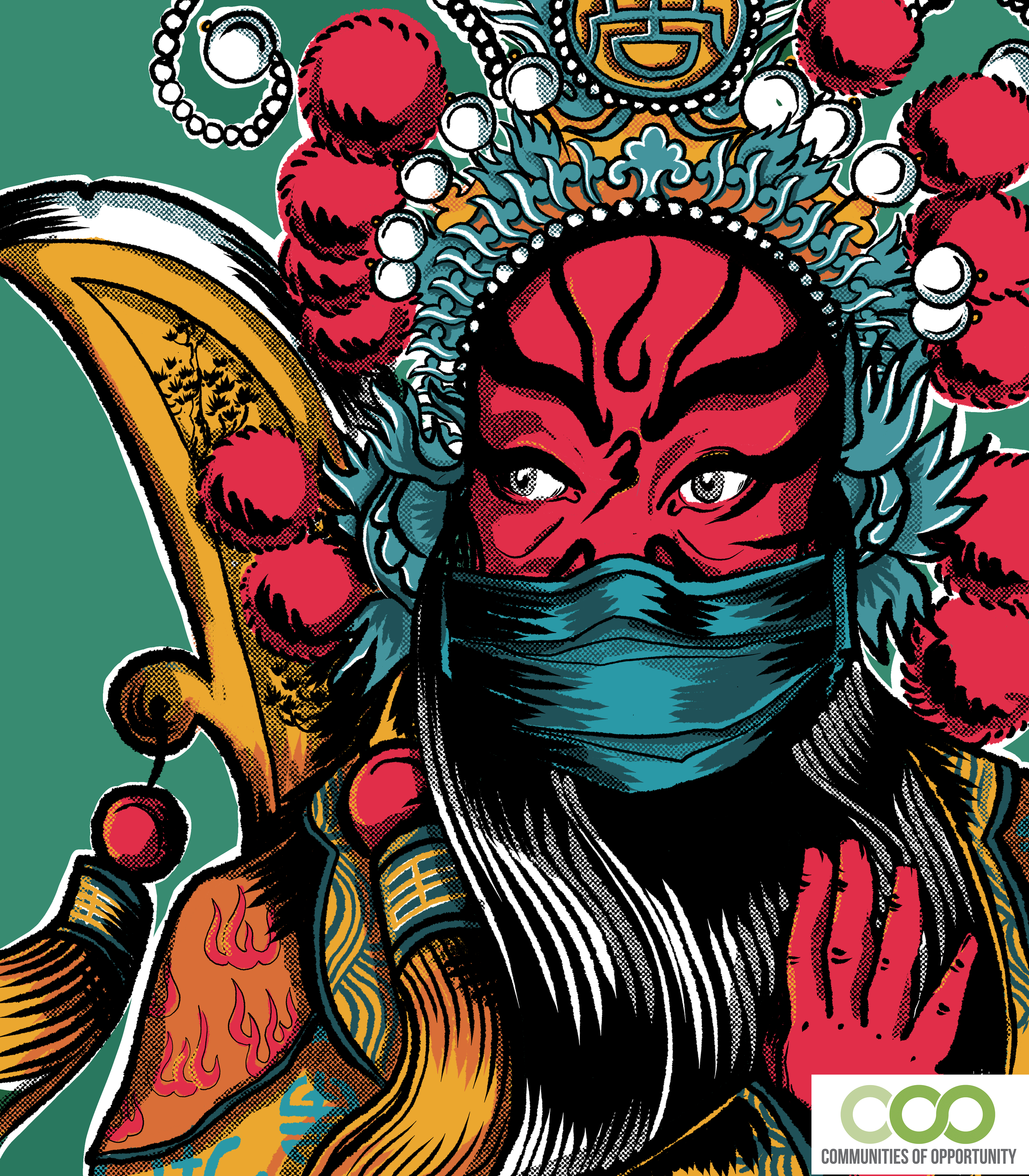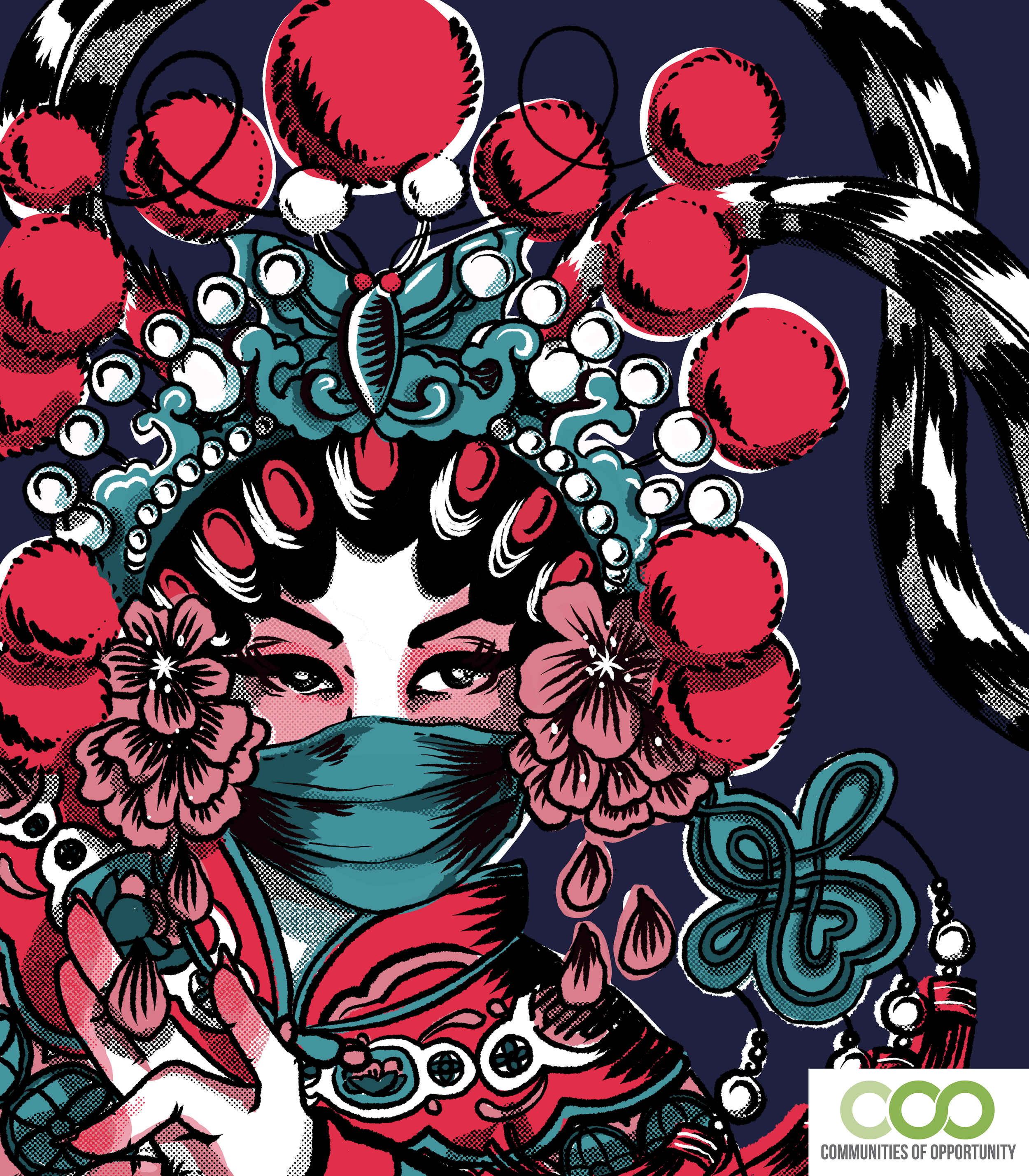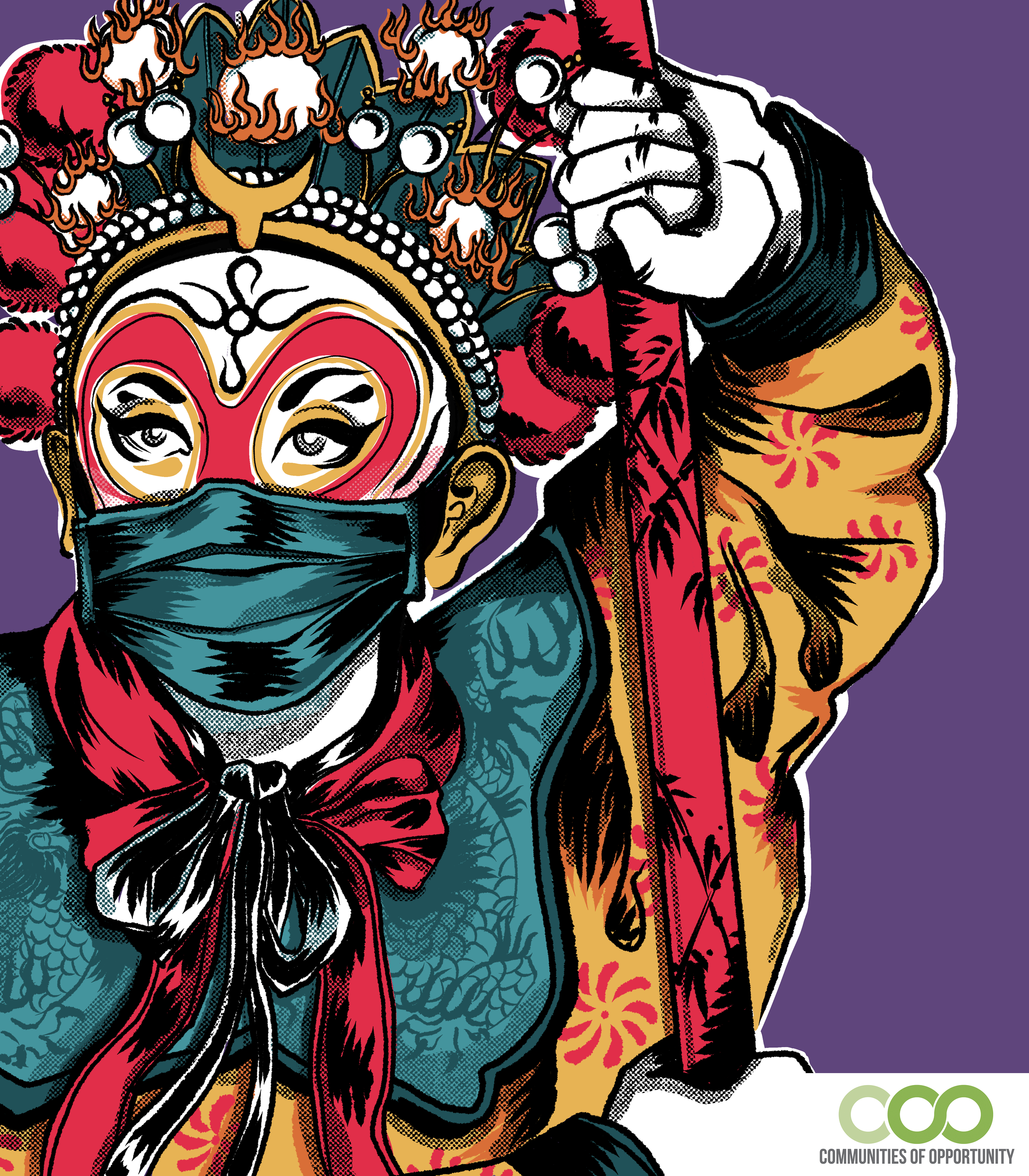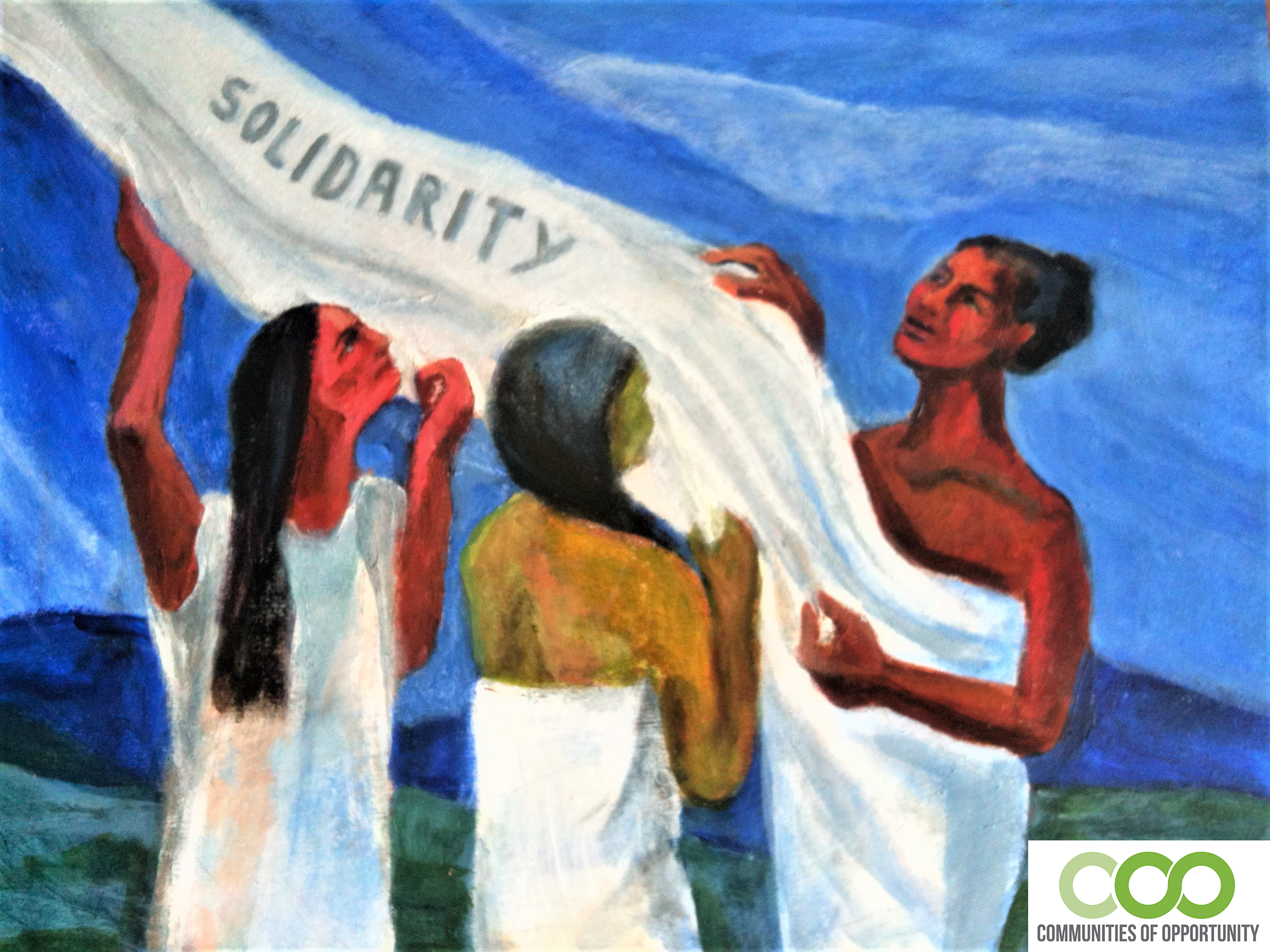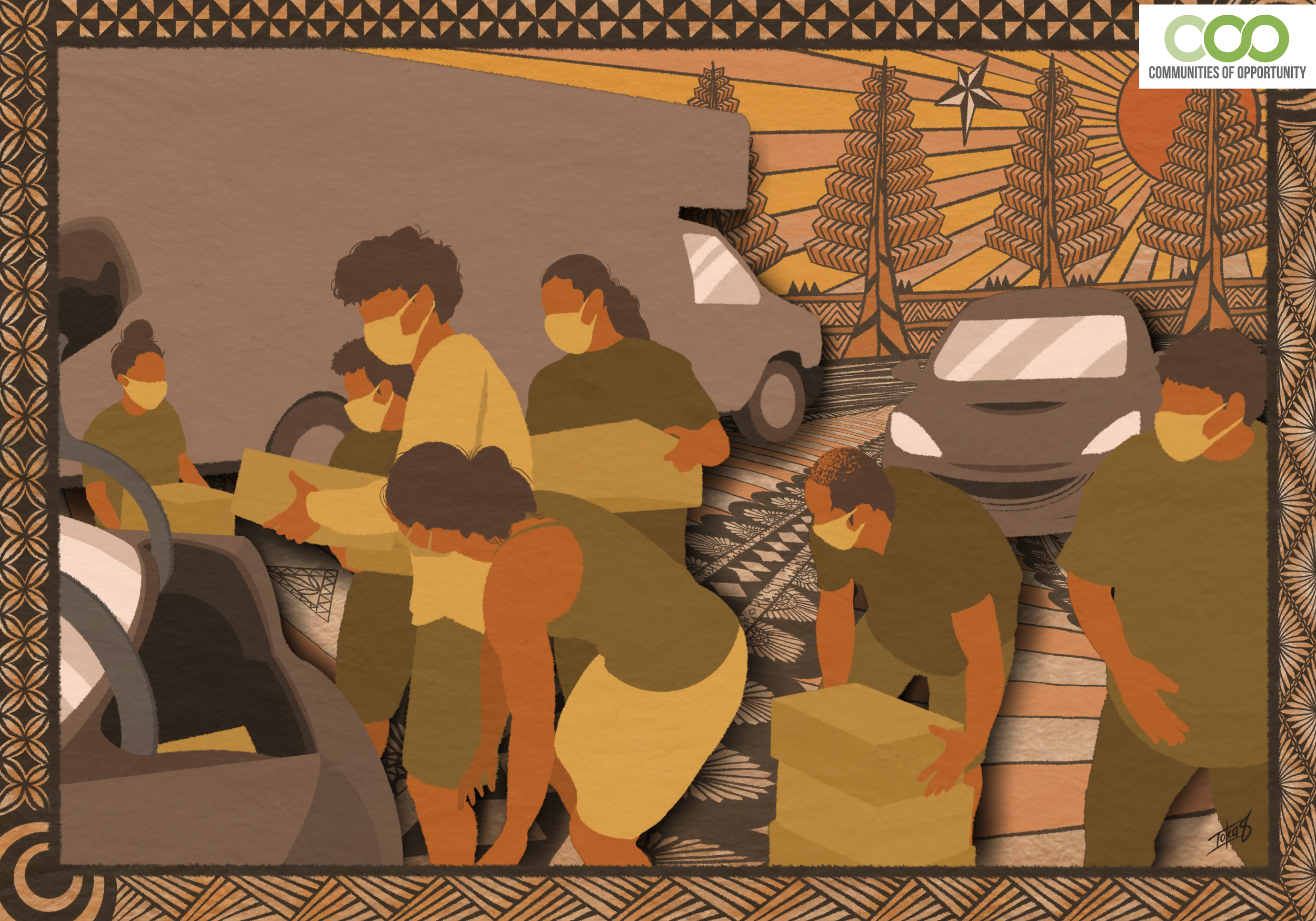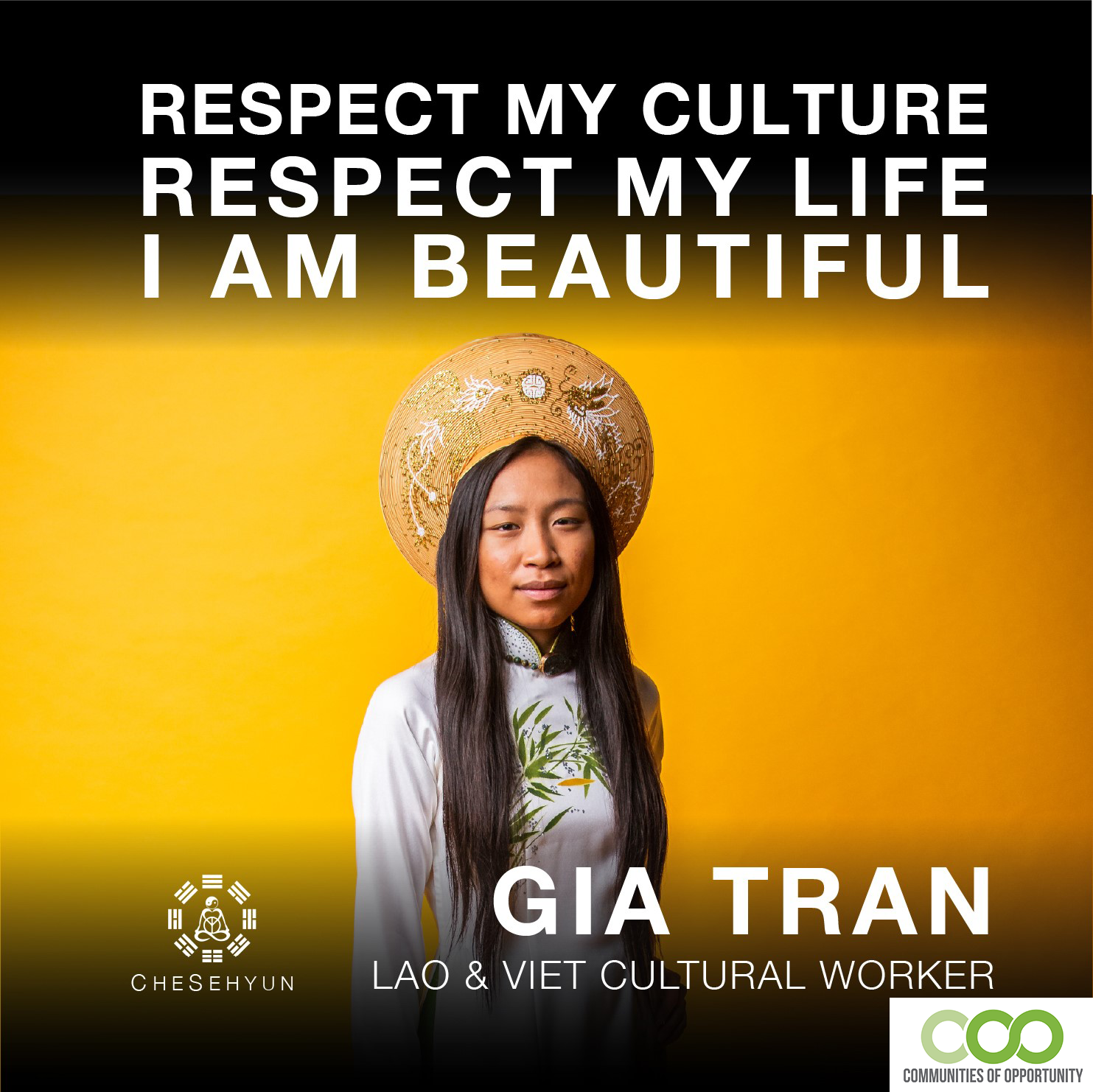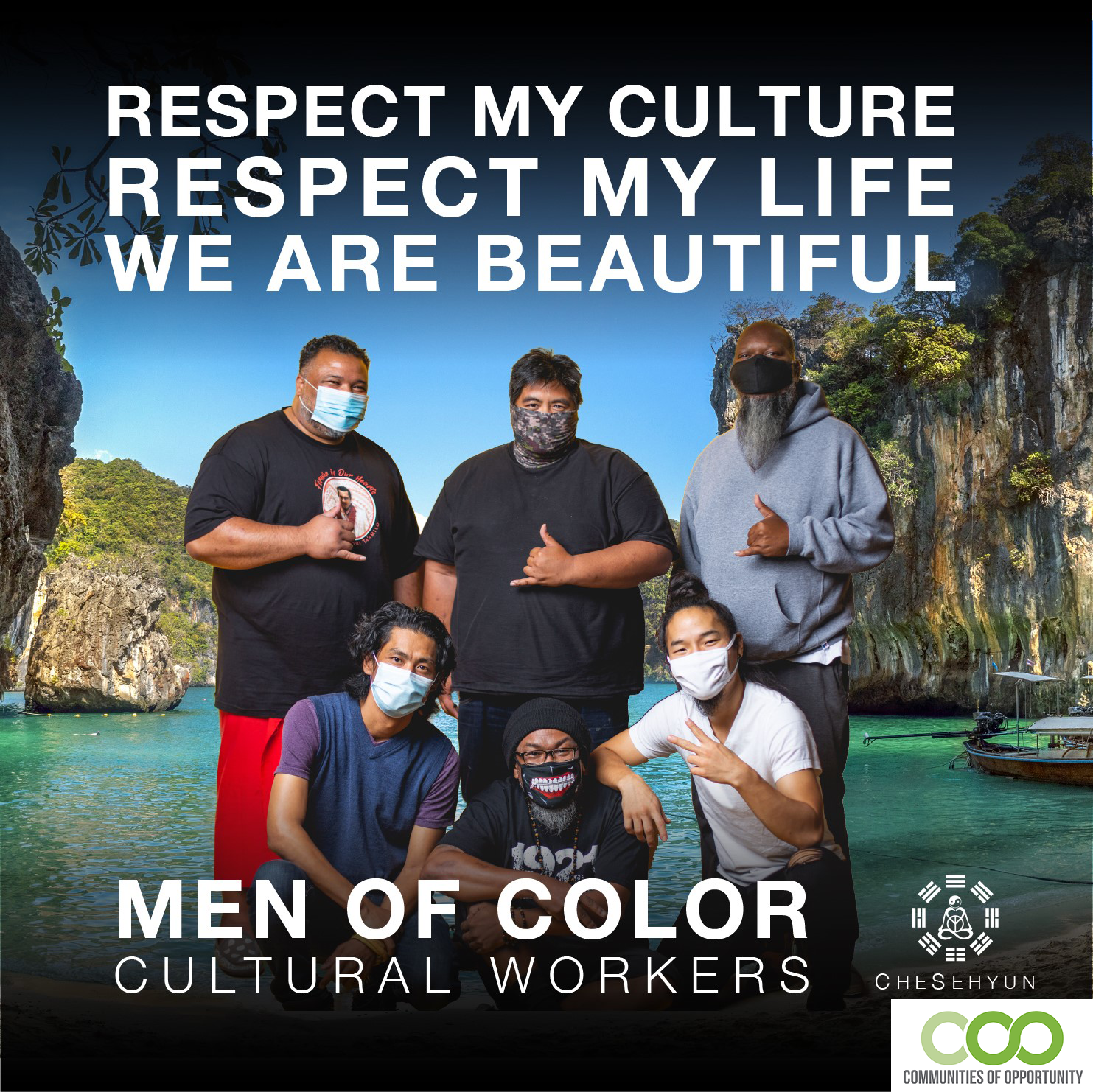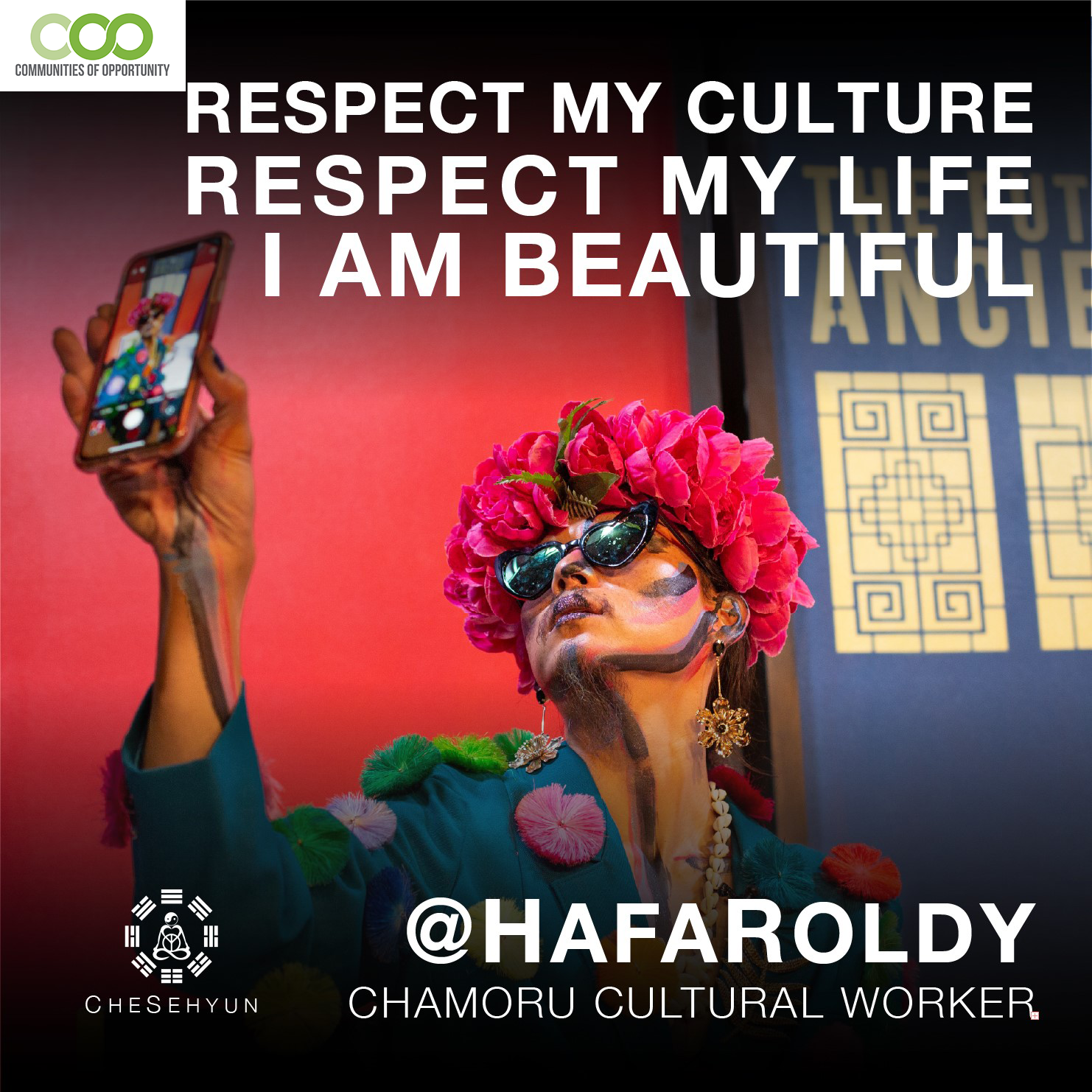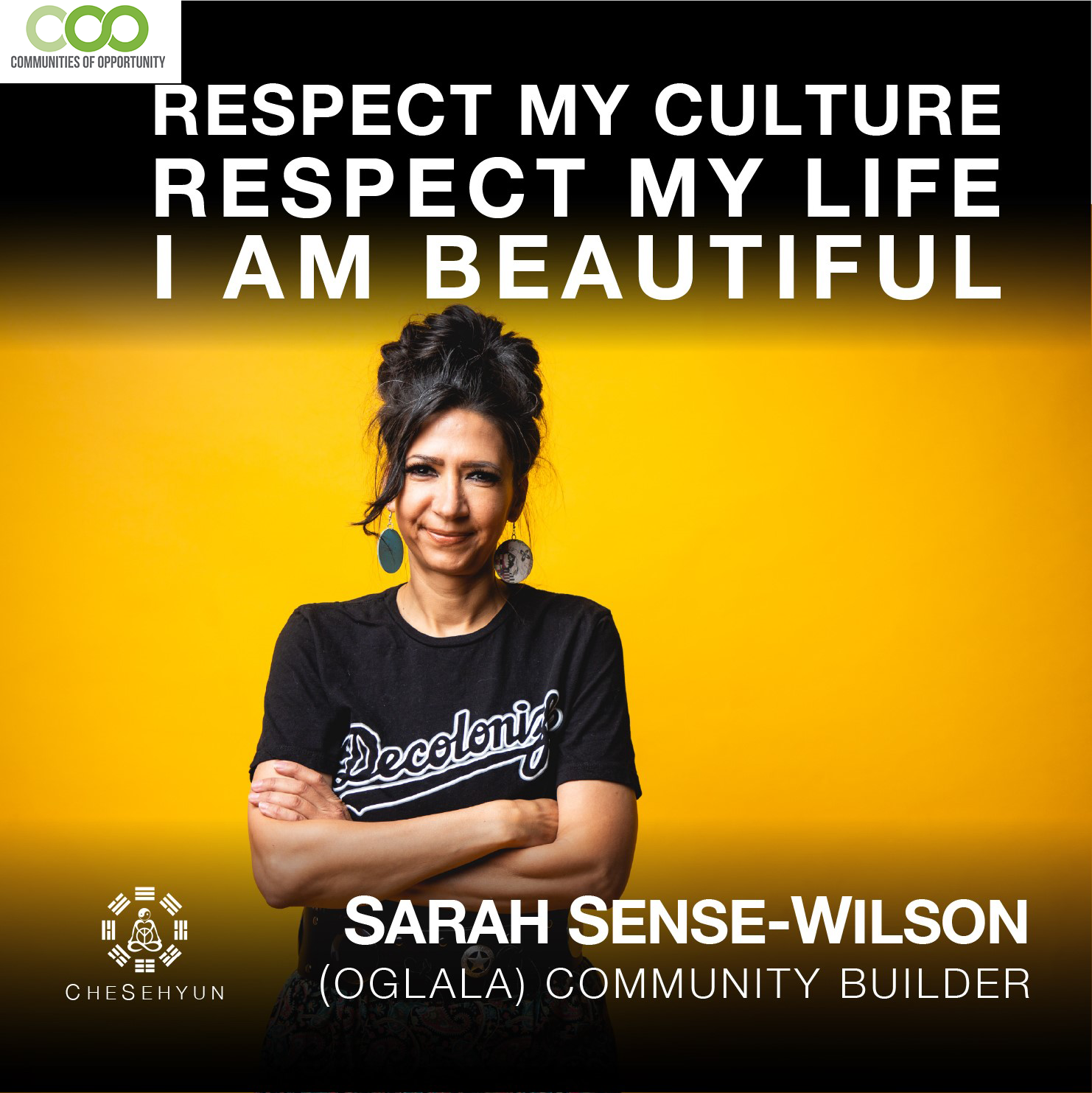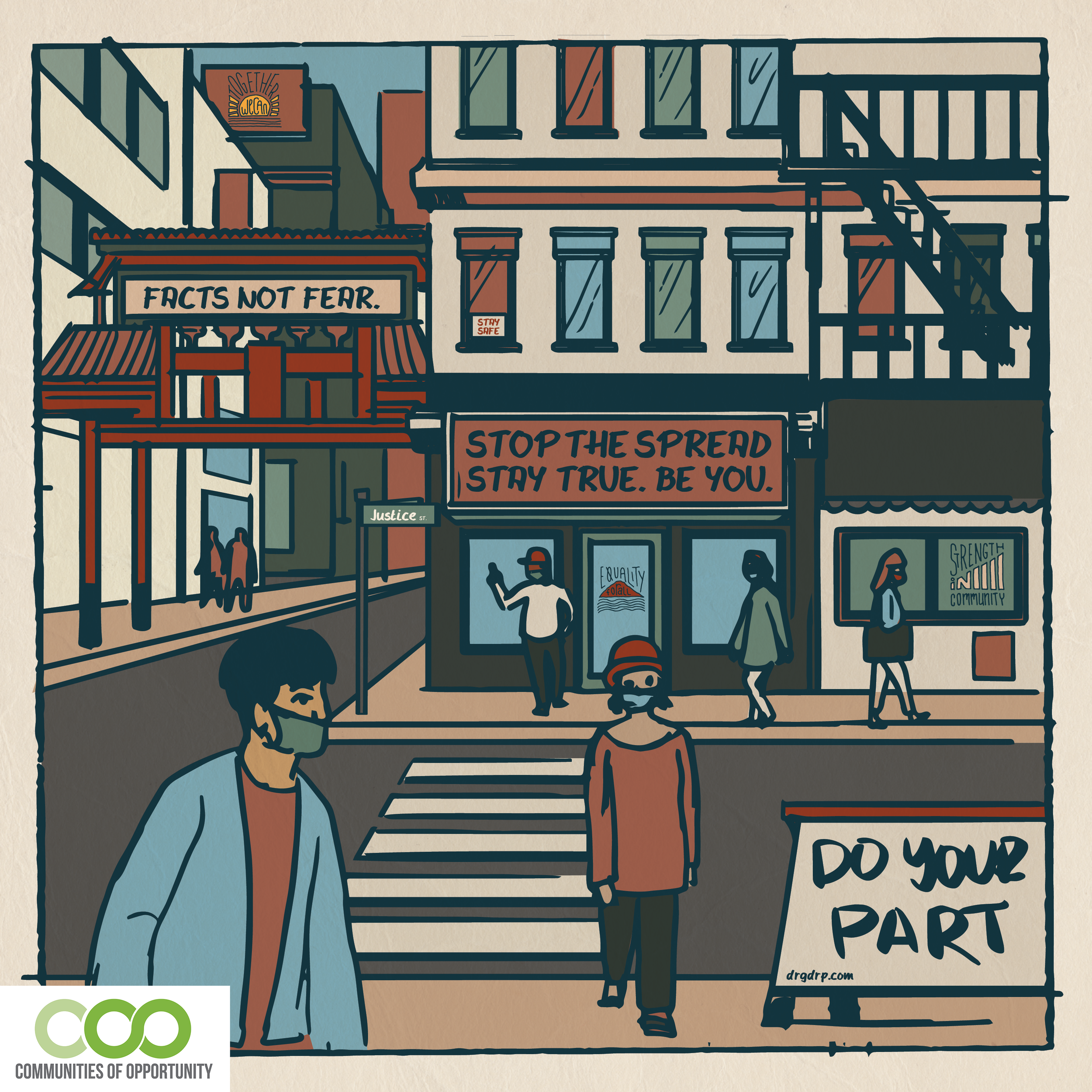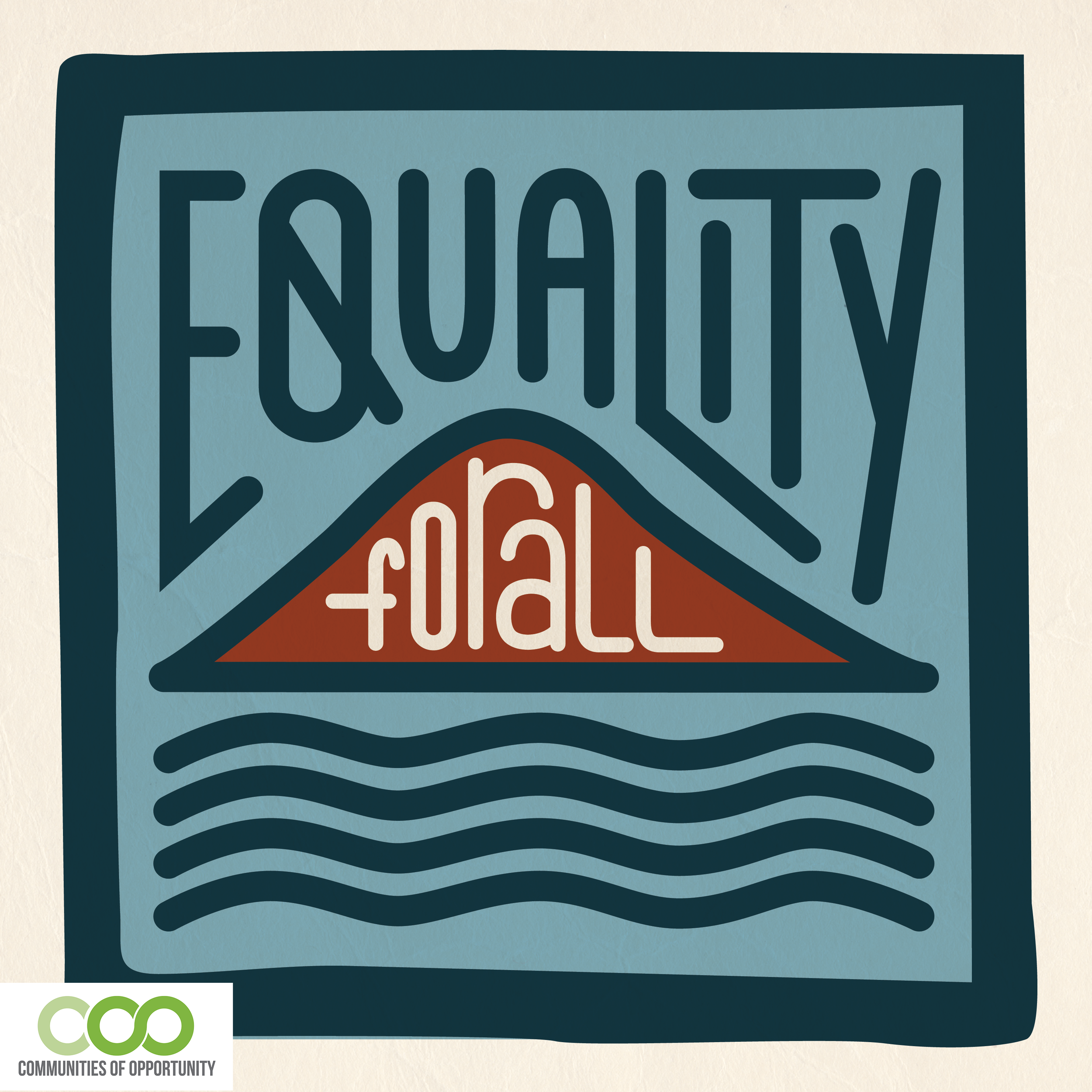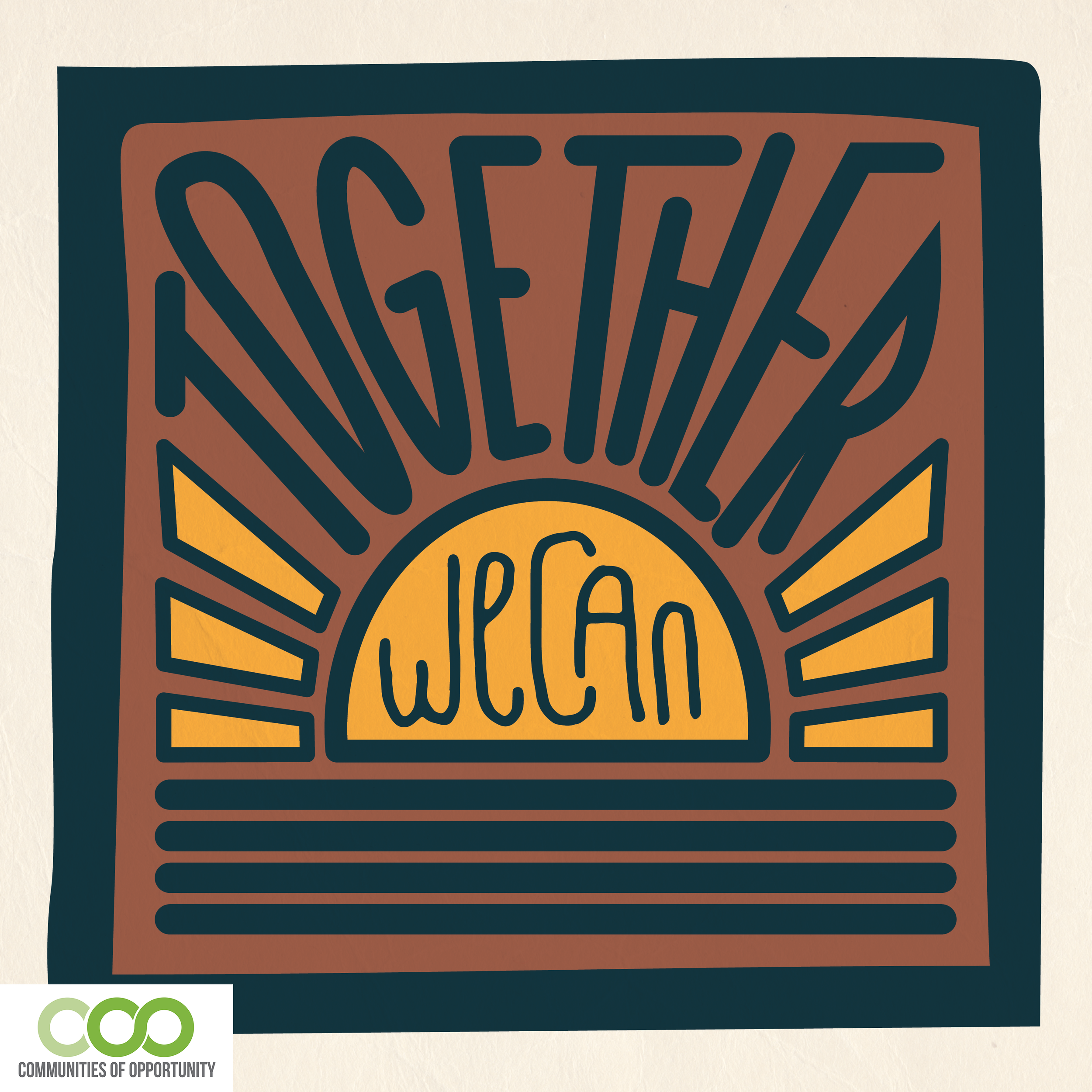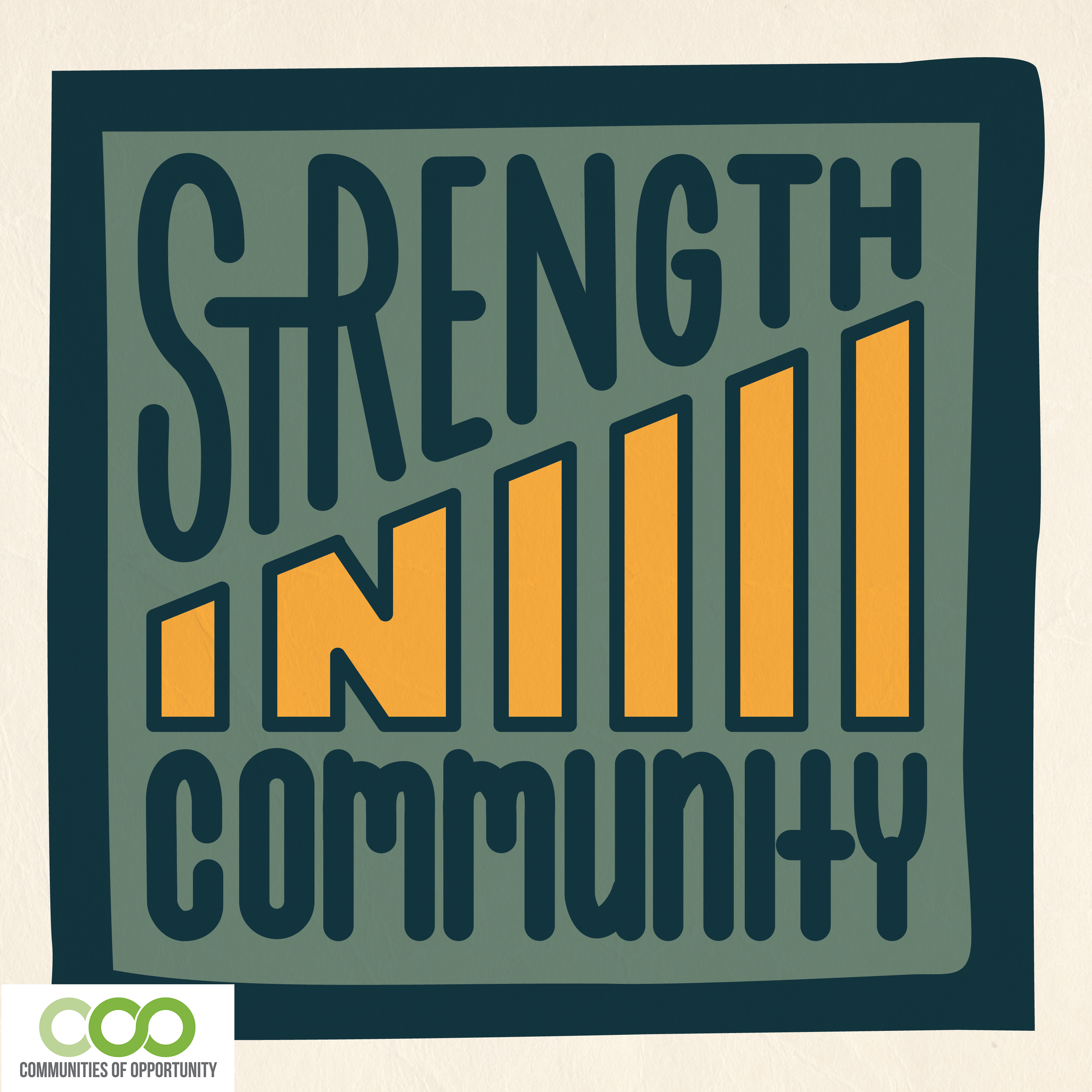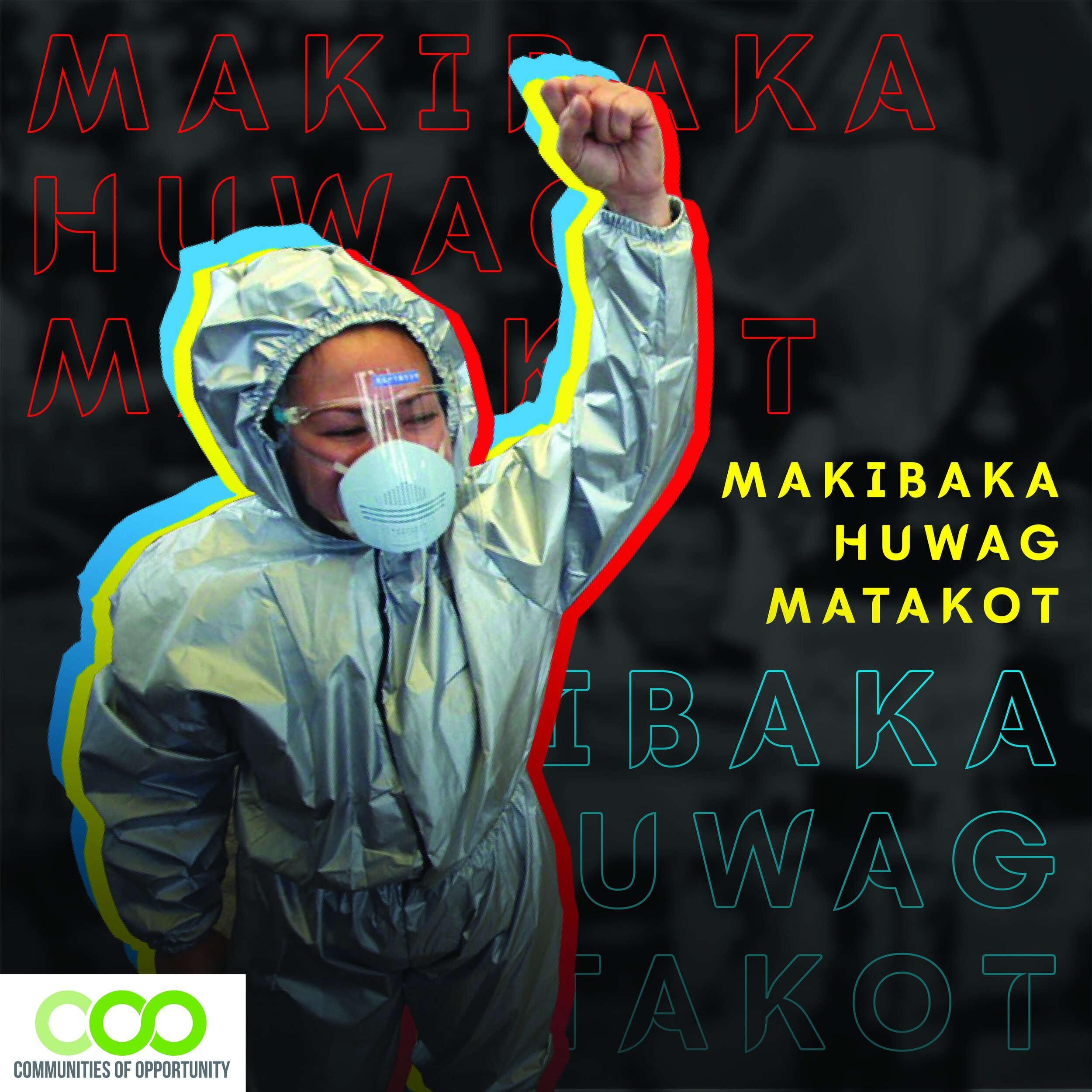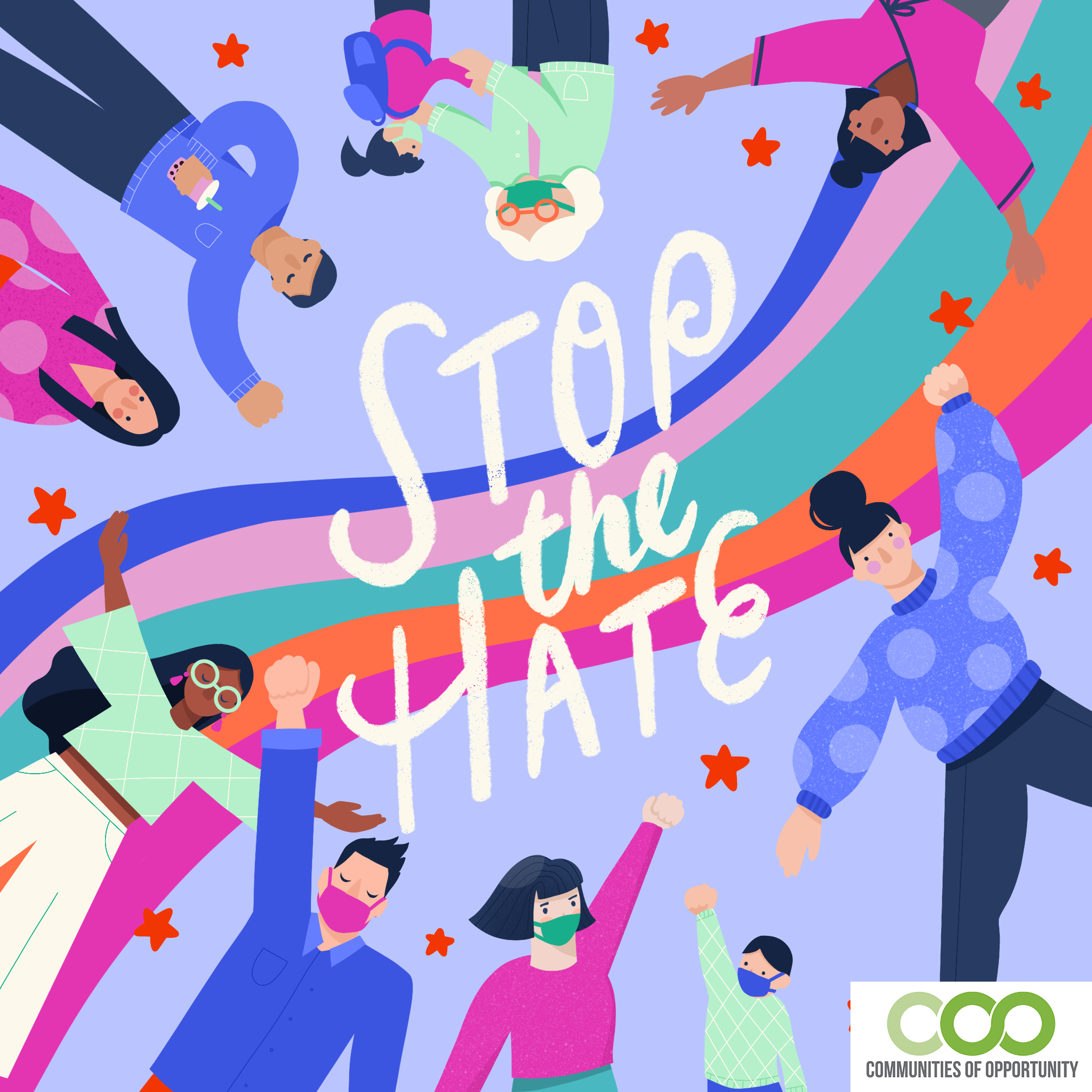New Work from Local Artists Depicts the Impacts of COVID-19 and Racism
New works by seven local artists and community creatives offer fresh ways of understanding the intersection of the COVID-19 pandemic with race, bias and culture.
The art features messages of hope and resilience and emphasizes that our health and well-being as individuals, and as a community, depends on one another.
These works are a direct response to the bias and stigma that we saw grow out of the of the COVID-19 pandemic. They not only help us reflect on the community solidarity that we have consistently seen throughout this pandemic response, but also suggest ways of creating a better future, during this uncertain time. Samples of the artwork follow below.
The context: Launching an art campaign during the pandemic
As COVID-19 cases rose here and across the country, incidents of hate and stigmatization also increased that were tied to the targeting and othering of Asian Americans – the recent continuation of a history of xenophobia and racism in the United States that uses wrong and harmful medical and public health justification for racist and violent policies, practices and actions to harm and dehumanize Black, Indigenous and immigrant and refugee communities.
Matt Echohawk-Hayashi, “In Our Community Whatever Affects One Affects All”
We know that pandemic has disproportionately impacted communities of color in King County, with rates of hospitalization and deaths due to COVID-19 significantly higher for Native Hawaiian/Pacific Islander, Hispanic, Black and American Indian/Alaska Native residents than white residents.
While COVID-19 does not discriminate based on race or ethnicity – we also recognize that our systems, structures and practices have advantaged some while burdening others.
It’s within this landscape that the King County Office of Equity and Social Justice (OESJ) launched the Anti-Hate and Bias Response Fund and the Coalition Against Hate & Bias – a community-led initiative to address hate and bias incidents by strengthening and networking communities who experience racist and bigoted treatment and all forms of oppression.
The Coalition Partners are also the administrators of the Hate and Bias Incident Response Survey, a new community-based reporting system for communities experiencing acts of hate and bias. This system is unique to the region and focuses upstream on empowering communities, rather than heightening enforcement through the criminal justice system.
This effort was also bolstered by a call for community art that speaks to our current moment and the multiplying impacts of COVID-19 and racism that King County communities face. You can download the art here in over 17 different languages.
Communities of Opportunity continued this effort in partnership with Public Health-Seattle & King County (PHSKC) with attention to how communities in King County have responded to the COVID-19 pandemic – the ways in which we have been resilient and have pulled closer together, rather than further apart.
Today we find ourselves and our communities in a much different place than in March. In response to the national and local uprisings for racial justice and in support of the Black Lives Matter movement, on June 11, 2020, King County declared racism a public health crisis. King County and Public Health Leadership stated that “…we need new systems coming from the communities most affected by racism, oppression, and colonization.”
As the overwhelming impacts of COVID-19 on public health and economic well-being continue to compound, while we look forward to the promise of widespread vaccine distribution in 2021, we have the opportunity to re-make and re-design our systems and practices so that the economic and public health recovery from the pandemic centers communities who have had the greatest barriers to justice, health, well-being and self-determination.
As a partnership focused on bringing together community, government and philanthropy in a new way, Communities of Opportunity believes that we must center the wisdom and strengths of community to transform how we create health and well-being for all people. Art is a necessary and too often overlooked component of envisioning these new and alternative futures.
We are so thankful to the seven artists who contributed to this series, for their creative labor and their commitment to expressing the power of community care, the healing potential of our traditions, and the ability to collectively combat the racism and stigma that has been attached to the COVID-19 pandemic.
We invite you to also join us in our vision to transform our future condition to one grounded in care, respect, equity and partnership.
Artists statements and samples of the artwork (with links to artist websites):
Tori Shao
Wearing is caring! Chinese opera is a form of musical theatre, the ornate costumes and painted faces have been developed over centuries and are steeped in symbolism, they are a source of cultural pride and identity. Notable characters from favorite tales persevere through the current-day trials of COVID-19 and racism, with modern day surgical masks and traditional symbols of resilience.
Nasrin Afrouz
I started painting on the Solidarity subject in April 2020 and my motivation for that is the current political situation on Racial Justice for all. I believe with Solidarity underserved communities of color will achieve their goal and rights. As an underserved artist not only do I feel this but also support it through my language that is visual arts.
View more of Nasrin’s work here and see the post on Instagram!
Toka Valu
Depicted here is a typical day at a PICA-WA food distribution site where several of our Pacific Islander young people and adults continuously show up to volunteer, support the livelihoods of our fellow Pasifika community members, and also connect and fellowship with each other. In times of hardship, our Pasifika communities have always responded by rallying to support each other and this weekly food distribution has come to personify what resilience looks like to me.
The illustrated background also pays homage to the longevity of our traditions and customs that have survived generations of systemic aggression in efforts to erase our collective sense of self. This too is resilience and it all points back to the importance of uplifting the voices and leadership of our Pasifika communities who continue to steward their own self-determination.
View more of Toka’s work here and see the post on Instagram!
Che Sehyun
We live in a globalized world and for our future to honor its beautiful diversity, we need to respect our differences, which are encapsulated through our ancient cultures that have been refined over thousands of years. It is us—we are living testaments of our culture, its beauty, integrity and relevance. I do not want my art to be centered on anti-anything, although this work is part of anti-bias and hate efforts, an important step, not end goal, in the right direction. I stand for our cultural futures and our collective liberation—that is our indigenous cultures, our lives and our innate beauty.
Drag and Drop Creative
This series explores how digital and physical spaces are being reshaped by COVID-19. The first piece is “the new normal”. The remaining focuses on inspirational messages.
Sharlyn Santiago
Filipinos leading the fight against COVID-19! Our frontline heroes saving lives, who will fight for theirs? Filipinos are often seen as the caretakers of the world as Filipinos are forced to work abroad under the Labor Export Policy (LEP) to provide for their families back home. Most are nurses who came to the US to be at the frontlines of the AIDS epidemic in the 1980’s. With the LEP continuing today, Filipinos have also been at the frontlines of the COVID pandemic, making up just 4% of nurses in the US, but 31.5% of total nurse deaths.
View more of Sharlyn’s work here and see the post on Instagram!
Yvonne Chan
Fueled by the pandemic and rising global tension, anti-Asian hate is surging once again. Hate crimes, verbal assaults, and stigmatization with Asians are only some forms of how this racism has played out recently. There are no easy answers on how to confront this – but being vigilant and supporting local Asian-owned small businesses is one place to start (such as those in the ID that have been stigmatized and hit particularly hard by this year). More than ever, we need to support and protect our local Asian communities. Stop the hate.
View more of Yvonne’s work here and see the post on Instagram!
Blogpost originally appeared in the Public Health Insider


